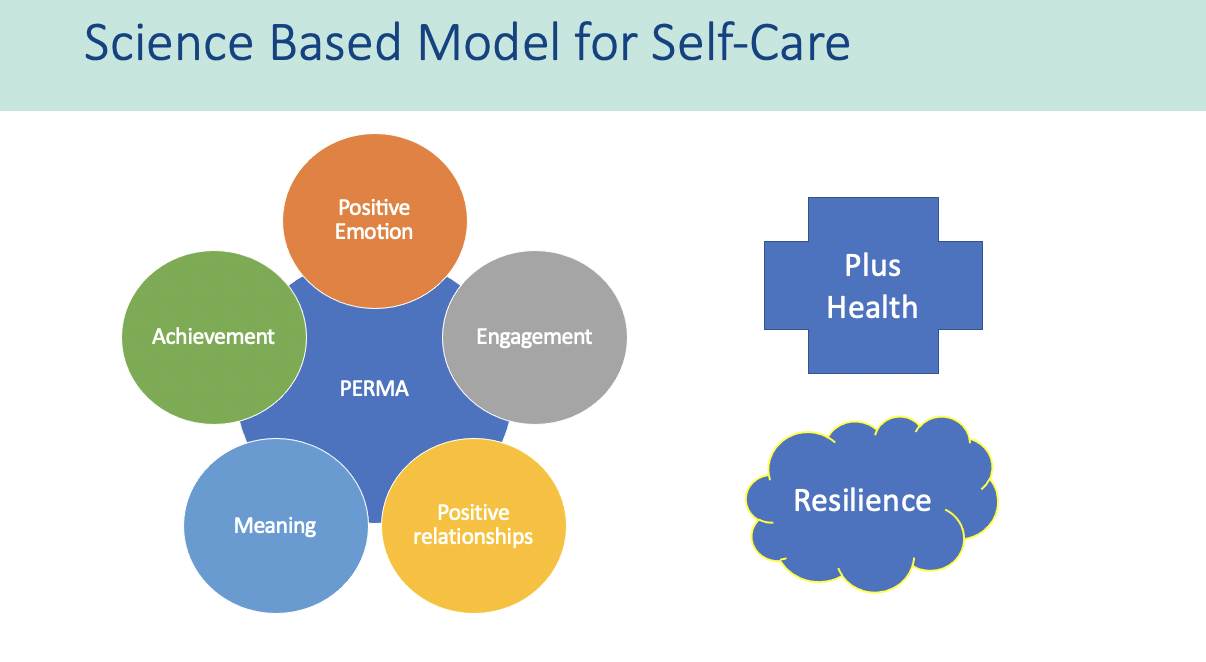“We cannot direct the wind, but we can adjust the sails.” Dolly Parton
I gave a talk last week on self-care and it was very timely. Record numbers of people are chronically stressed and heading for burnout.
The World Health Organization defines burnout as “Chronic workplace stress that has not been successfully managed.”
It is an occupational phenomenon and not a medical condition. However, it has become synonymous with chronic stress for everyone.
There are 3 dimensions of burnout syndrome:
- Feelings of energy depletion or exhaustion
- Increased mental distance from one’s job or feelings of negativism or cynicism
- Reduced professional efficacy.
Whether chronic stress is workplace-related or not self-care remains an important tool for preventing and treating it.
The WHO also defines self-care… “The ability (of individuals, families, and communities) to promote health, prevent disease, maintain health, and to cope with illness and disability with or without the support of a healthcare provider.”
As you may know, I love science-based strategy. When it comes to self-care Wellbeing theory from the positive psychology movement offers a great framework.
If you’re not feeling good or are suffering from persistent stress or negative emotions ask yourself what can I do today in these fields (PERMA + Brain Health + Resilience):
- Positive emotions: Do something that makes you feel good. e.g. meditate, dance to your favorite song, play with your pet or kids, watch a favorite TV show. However, this doesn’t include nihilistic endeavors or simple self-soothing which may have side effects e.g. getting drunk or binge eating.
- Engagement: Do something that really engages you. This could be something where you felt energized, really had fun, lost track of time doing something where you got in flow-state, were really interested or felt inspired to do something.
- Relationships (positive ones): First this begins with connecting with yourself, perhaps through journaling, reading a self-help book or a coaching session with your favorite coach. Then reach out to someone that lifts you up. Tell them what you need and embrace their support.
- Meaning: Do something meaningful that aligns with your values. Here’s an idea I share in my talk this week. Look back through some old photos. Find ones that make you feel good. Why does it make you feel that way? Enjoy that feeling… savor it.
- Achievement: We need to feel genuinely fulfilled and that comes from within… not from external trophies. Do things where you can control the outcome. Track and celebrate the small wins… the progress in your personal life. Do things that make you feel: Fulfilled, proud, like you are growing as a person or that you are contributing beyond yourself without expectation of anything in return: helping someone, being kind or volunteering.
- Brain health: Do something that’s good for your brain… eat something healthy and delicious, do some fun exercise activity or just get an early night and catch up on your sleep.
- Resilience: Play the silver-lining game… think of a challenge you have faced in the past, what gifts or opportunities came from it, in time. (Note this is possible for 99% of challenges at least).
Be pre-emptive about self-care… when you are chronically stressed or burn-out it’s not too late but the damage is already done. Promise yourself that you’ll do self-care activities every day!
“You yourself, as much as anybody in the entire universe, deserve your love and affection.” Buddha
Coach Leonaura
